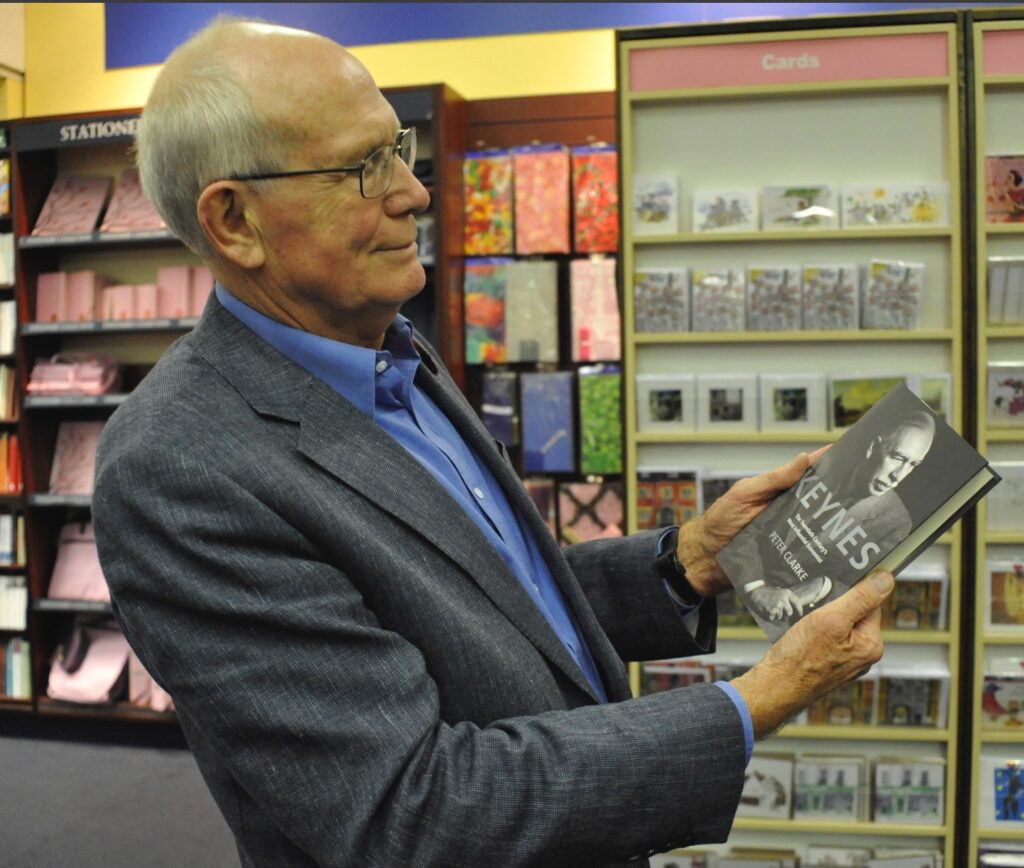The History Man

My friend, the historian Peter Clarke, at the launch of his book on Keynes in 2009.
Quote of the Day
”I always say beauty is only sin deep.”
- Saki (H.H. Munro)
Musical alternative to the morning’s radio news
Albert Ammons | Boogie Woogie Stomp | Ladyva live in Germany.
Nobody sleeps at the back when this kind of music is played.
Long Read of the Day
Last week Josh Simons and I had a conversation with Alina Utrata about Elon Musk and Twitter on her splendid Anti-Dystopians podcast. At that point all we knew was that Musk had rejected the Twitter Board’s offer of a seat on the Board in return for an undertaking not to increase his shareholding beyond a certain point, and our conversation was largely about: Twitter’s key role in the networked public sphere; various aspects of Musk’s enthusiasm for “free speech”; and the implications of his declared interest in buying the whole company and taking it private.
Since we recorded the podcast, the story moved on, and yesterday the announcement came that the Board had accepted Musk’s offer of $54.20 per share. So Twitter’s second-biggest troll has now bought the platform he relentlessly trolled. Nobody knows how this will play out — or indeed what Musk is playing at — but my gut instinct is that ‘free speech’ is not the top of his agenda.
In the meantime, Ranjan Roy, a canny observer of these things, has put together the widest range of speculations that I’ve seen, which is why I recommend it as today’s Long Read. Here’s the gist:
My mini-grand theory is that this entire sequence of events: The Twitter purchase, the SEC escalation, Tesla’s blowout quarter – it’s all about the next giant package. Musk saw an opportunity at the beginning of the year. Tesla’s business was on a roll, his pay package was almost complete, the SEC was threatening his Twitter account, and Tesla’s stock had stalled out for six months. Every great entrepreneur understands the importance of momentum and he decided to capitalize on this confluence of events.
But there’s lots more.
The key takeaway is that this is only incidentally about free speech. It’s really about democracy, power and naked capitalism.
How democracies spy on their citizens
Generally they use Pegasus, a fiendish piece of spyware for compromising iPhones which was developed — and is marketed — by an Israeli company, NSO. This New Yorker piece provides a readable introduction to the ways it’s being used (including infecting a phone or phones in Boris Johnson’s office). The only good news in this story is that NSO now appears to be struggling.
The company has been valued at more than a billion dollars. But now it is contending with debt, battling an array of corporate backers, and, according to industry observers, faltering in its long-standing efforts to sell its products to U.S. law enforcement, in part through an American branch, Westbridge Technologies. It also faces numerous lawsuits in many countries, brought by Meta (formerly Facebook), by Apple, and by individuals who have been hacked by NSO. The company said in its statement that it had been “targeted by a number of politically motivated advocacy organizations, many with well-known anti-Israel biases,” and added that “we have repeatedly cooperated with governmental investigations, where credible allegations merit, and have learned from each of these findings and reports, and improved the safeguards in our technologies.”
If NSO is indeed in trouble, it is thanks mainly to amazing forensic work by the Citizen Lab, a terrific research group based at the University of Toronto that focusses on high-tech human-rights abuses.
My commonplace booklet
How Ikea tricks you into buying more stuff. Who knew? Link
This Blog is also available as a daily email. If you think that might suit you better, why not subscribe? One email a day, Monday through Friday, delivered to your inbox. It’s free, and you can always unsubscribe if you conclude your inbox is full enough already!
